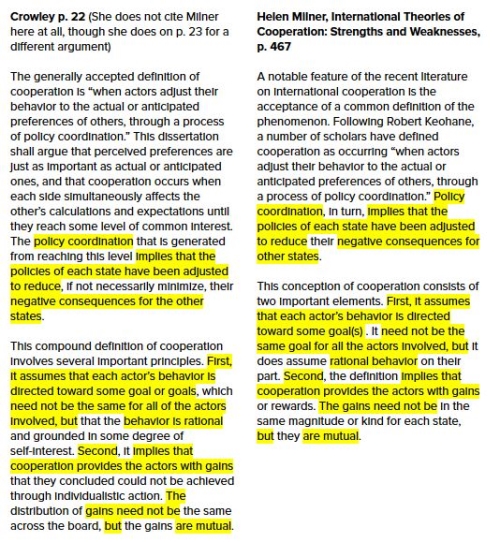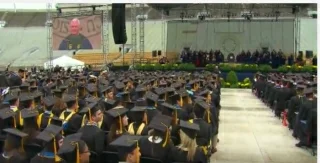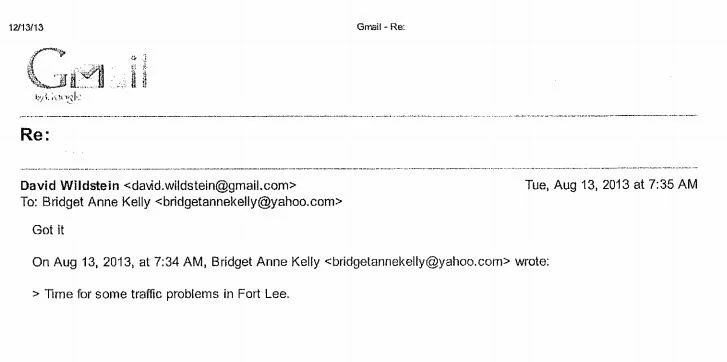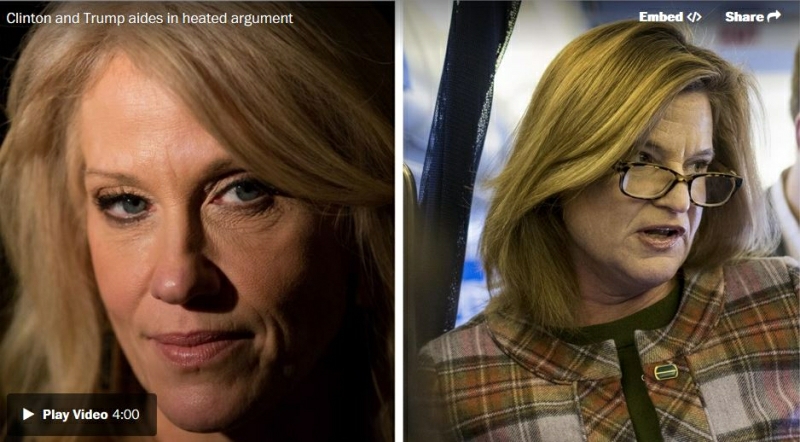APA Responds to Book Controversy
 Japanese Hotel Group APA placed copies of a book written by the company CEO in all hotel rooms. Sounds nice, but the book calls the 1937 Nanjing massacre of 300,000 Chinese troops and civilians by the Japanese a "fabrication."
Japanese Hotel Group APA placed copies of a book written by the company CEO in all hotel rooms. Sounds nice, but the book calls the 1937 Nanjing massacre of 300,000 Chinese troops and civilians by the Japanese a "fabrication."
APA Founder Toshio Motoya wrote under a pen name but admitted to writing the book and having them distributed throughout the group's 370 budget hotels. A hotel guest's video showing the book content went viral on Weibo with 95 million views, according to Skift. At least one Chinese travel company in Japan stopped booking guests in APA hotels.
A spokesperson for the Chinese Foreign Ministry, Hua Chunying, said, "This once again shows that some forces in Japan are still reluctant to look squarely at history, and even try to deny and distort history."
APA responded in a statement, translated here. In this excerpt and throughout the statement, the company makes no apologies:
Although we acknowledge that historic interpretation and education vary among nations, please clearly understand that the book is not aimed to criticize any specific state or nation, but for the purpose of letting readers learn the fact-based true interpretation of modern history. Therefore, we have no intention to withdraw this book from our guest rooms, no matter how many denounces may be made about it from whatever viewpoint. Japan constitutionally guarantees freedom of speech and no one-sided pressures could force any assertion made get repealed.
Discussion:
- Did the company make a mistake by placing the books in hotel rooms? What are the rationale and consequences?
- How do you assess the company's response? Consider principles of responding to customer complaints in Chapter 7.
- Would you stay at an APA hotel? How, if at all, does this situation influence your decision?
SeaWorld Responds to Tillikum's Death
 Featured in Chapter 7 of the 10th edition, SeaWorld has not responded well to controversy about keeping orcas in captivity. Tillikum, an orca with a starring role in the movie Blackfish, died on January 6. In response, SeaWorld updated its Tillikum page with news about his "life and care," which, of course, have been in question for the 25 years he lived and worked at the park. The company also produced a video, "In Memory of Tillikum."
Featured in Chapter 7 of the 10th edition, SeaWorld has not responded well to controversy about keeping orcas in captivity. Tillikum, an orca with a starring role in the movie Blackfish, died on January 6. In response, SeaWorld updated its Tillikum page with news about his "life and care," which, of course, have been in question for the 25 years he lived and worked at the park. The company also produced a video, "In Memory of Tillikum."
In a statement on its website, the company does acknowledge Dawn Bradshaw's death. However, the recent approach seems to blame Tillikum, while previous communications blamed Bradshaw and her wayward ponytail.
While today is a difficult day for the SeaWorld family, it's important to remember that Tilikum lived a long and enriching life while at SeaWorld and inspired millions of people to care about this amazing species.
Tilikum's life will always be inextricably connected with the loss of our dear friend and colleague, Dawn Brancheau. While we all experienced profound sadness about that loss, we continued to offer Tilikum the best care possible, each and every day, from the country's leading experts in marine mammals.
In December, PETA named Tillikum its first "animal of the year." When he died, PETA president and founder Ingrid Newkirk wrote an opinion article for Time Inc. titled, "Tillikum Died for His Freedom."
Discussion:
- How well is SeaWorld handling communications around Tillikum's death? Should the company do something differently now?
- How well is PETA capitalizing on the chance to get its message out? What persuasive strategies does Newkirk use in her Time Inc. op-ed? Was a Time article a good choice? What other channels did PETA use?
Plagiarizing a Dissertation Puts Trump Pick in Question
President-elect Trump's choice for the senior director of strategic communications for the National Security Council is Monica Crowley, a political commentator. Politico reviewed her dissertation in international relations from Columbia University and found multiple issues of using quotations with quotation marks, paraphrasing too closely, and missing citations.
The example shown here is one of twelve Politico questioned.
The Trump team is standing by their candidate: "Any attempt to discredit Monica is nothing more than a politically motivated attack that seeks to distract from the real issues facing this country." And Columbia University is trying to avoid the controversy, as a media representative told The Chronicle of Higher Ed:
"We have no comment on Monica Crowley's dissertation, which was submitted in 2000 and is publicly available. The university's process for addressing concerns raised about university research preserves the confidentiality of any review, and even the fact of a review's existence is confidential while it is underway. Columbia is committed to upholding the very highest standards of integrity and credibility in academic research."
CNN reports more than 50 instances of plagiarism in Crowley's 2012 book, What the (Bleep) Just Happened? In a statement, publisher HarperCollins said, "The book, which has reached the end of its natural sales cycle, will no longer be offered for purchase until such time as the author has the opportunity to source and revise the material."
Discussion:
- Review the examples presented by Politico and CNN. What principles of documenting sources described in Chapter 10 are missed?
- Is this a big deal, or is the media overblowing the situation, as the Trump team believes? Does her potential position as the senior director of strategic communications influence your opinion?
- What should happen now? How should Crowley and the Trump team handle her pending position?
Snap Inc. May Have Falsified Metrics
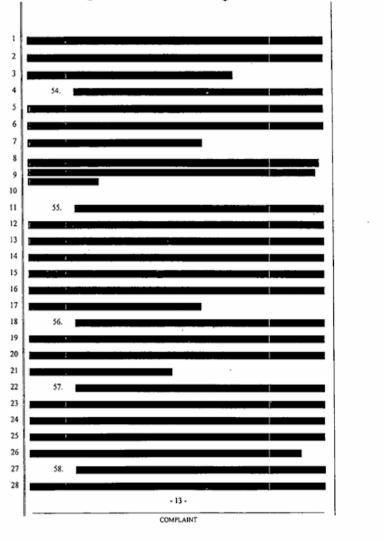 As Snap Inc. plans for an IPO, a former employee says he was fired for trying to reveal falsified metrics. Anthony Pompliano claims he was terminated only three weeks into his tenure at Snap Inc. running the new user growth and engagement team. Pompliano also charges Snap Inc. with hiring him from Facebook to get proprietary information.
As Snap Inc. plans for an IPO, a former employee says he was fired for trying to reveal falsified metrics. Anthony Pompliano claims he was terminated only three weeks into his tenure at Snap Inc. running the new user growth and engagement team. Pompliano also charges Snap Inc. with hiring him from Facebook to get proprietary information.
"We've reviewed the complaint. It has no merit. It is totally made up by a disgruntled former employee," said Mary Ritti, Snap's vice president of communications. The company also said Pompliano was fired because he was "incompetent" and "not adequately performing in his position."
Pompliano's attorney said, "Snapchat's leadership saw Mr. Pompliano as an impediment to their planned IPO because he refused to turn a blind eye to Snapchat's misrepresentations." (Snapchat is the former name of Snap Inc.) The claim also charges Snap Inc. with damaging the former employee's reputation and ability to find new work.
Business Insider posted the entire court filing, but several pages are heavily redacted, like the one shown here. These darken parts may represent proprietary Snap Inc. information.
This isn't the first time Snapchat's integrity has been questioned. In 2014, the company settled a claim with the Federal Trade Commission that it exaggerated how easily images sent through the app disappear. The news led to many doubting the safety of sending personal images.
Discussion:
- In what ways could Snap Inc. exaggerate metrics to potential investors? What do you think is the issue here?
- How credible do you find Pompliano's claim? How can a judge decide such a claim?
In France, Employees Can Disconnect
 France passed a new law allowing employees the "right to disconnect" from email after their regulated 35-hour work week. French unions blame technology for causing an "explosion of undeclared labor," and we know something about this in the United States. Rather than ban after-work email, which may be impossible to achieve, the ruling requires companies to give establish new guidelines for emailing after work.
France passed a new law allowing employees the "right to disconnect" from email after their regulated 35-hour work week. French unions blame technology for causing an "explosion of undeclared labor," and we know something about this in the United States. Rather than ban after-work email, which may be impossible to achieve, the ruling requires companies to give establish new guidelines for emailing after work.
Some question whether the strategy will hurt France competitively; the country already has generous vacation and other benefits. However, the United States is notoriously behind the times with some labor laws. For example, we are the only industrialized nation without paid parental leave.
Companies have taken other steps to encourage employees to talk with each other face-to-face and to have a life outside of work. Limiting the hours when employees are expected to respond to email, discouraging email during vacations, and sending fewer of them are some common practices.
Discussion:
- What's your view of the new French law? What could be some positive and negative results?
- Short of instituting a new federal law, what can managers do to curb email within their organizations? Consider a few strategies-starting with the top, of course
Japanese Ad Exec Resigns After Employee Suicide
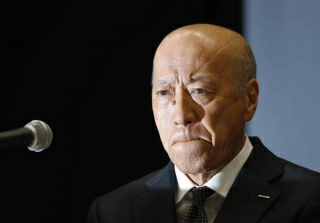 The president of Dentsu Inc., Japan's largest advertising agency, resigned because of an overworked employee's suicide last year. In a news conference, Tadashi Ishii said, "We deeply regret failing to prevent the overwork of our new recruit. I offer my sincere apology." He also said, "Although we took various countermeasures, the issue of overwork has not been improved. I will take full responsibility."
The president of Dentsu Inc., Japan's largest advertising agency, resigned because of an overworked employee's suicide last year. In a news conference, Tadashi Ishii said, "We deeply regret failing to prevent the overwork of our new recruit. I offer my sincere apology." He also said, "Although we took various countermeasures, the issue of overwork has not been improved. I will take full responsibility."
According to an executive at the firm, 24-year-old Matsuri Takahashi was forced to work long hours and underreport her time. She died by jumping from a high floor of the company's living quarters.
An employee who watched the news conference said, "His stepping down is a natural decision to prevent the company's image from deteriorating further." Resigning is common in these situations in Japan.
Discussion:
- Employees seem skeptical that the company will change, but they are turning out the lights at 10 pm to encourage people to stop working and go home. What else could they do to change the culture of overwork?
- Advertising firms in the United States have a similar reputation for long hours. Why do you think that's the case?
- Under what, if any, circumstances would you take a job that requires 100 hours of work each week?
Retailers Sued for Fake Sales
 When is a sale not really a sale? Macy's, Kohl's, JCPenney, and Sears are facing lawsuits for "false reference pricing"-showing prices as "regular," "list," or "original" when they never were. According to the Consumerist:
When is a sale not really a sale? Macy's, Kohl's, JCPenney, and Sears are facing lawsuits for "false reference pricing"-showing prices as "regular," "list," or "original" when they never were. According to the Consumerist:
Under California law, retailers are prohibited from advertising an alleged former price of an item less the alleged former price was the prevailing market price within three months of the advertisement, or unless the date when the former price was in effect is clearly advertised.
To this end, the city [Los Angeles] claims that thousands of "sale" items were advertised at false reference prices.
In other words, items marked on sale were never sold at the so-called "original" price, and that's a misrepresentation.
The Los Angeles attorney who filed the suits said, "Customers have the right to be told the truth about the prices they're paying–and to know if a bargain is really a bargain. My office will fight to hold retailers responsible for their practices and to ensure consumers can make informed choices when spending their hard-earned money."
Checkbook.org brought a similar suit against some of these retailers in 2015. At that time, Sears made this statement:
"Sears disagrees with any suggestion that its pricing is misleading or deceptive. Sears is focused on providing its members with great prices on a wide variety of products and services," adding that it "complies with applicable pricing and advertising laws."
"... as a multi-channel, leading integrated retailer we are uniquely positioned to provide discounts to our members and customers in a number of different, legally compliant ways, including things like member pricing, store or online only promotions, clearance offers, and offers from third-party marketplace sellers," the statement said. "It is unfortunate that Checkbook.org did not appear to take these factors into account before making its assumptions."
Discussion Starters:
- How are you influenced by advertised "sales"?
- How believable do you find the two statements from 2015? What defense will the retailers bring to this suit?
Facebook Gets Serious About Fake News
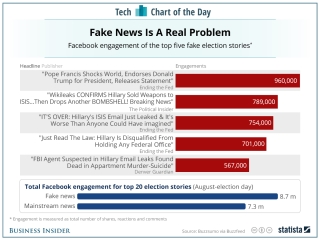 Facebook is getting serious about addressing fake news on its site. The issue came to a head when an armed man fired a shot in a pizzeria, believing a story about Hillary Clinton ran a child sex ring there.
Facebook is getting serious about addressing fake news on its site. The issue came to a head when an armed man fired a shot in a pizzeria, believing a story about Hillary Clinton ran a child sex ring there.
First, Facebook is partnering with outside fact checkers ABC News, The Associated Press, FactCheck.org, Politifact, and Snopes, who will review a story identified as possibly untrue. Stories that don't pass muster will be flagged as "disputed," will show lower down on a newsfeed, and will carry another warning if people want to share it.
In a post on its website, Facebook explained the changes in text, with images from the app, and in this video.
Although Mark Zuckerberg has downplayed the issue as only 1% of Facebook posts, he clearly see the company's responsibility. He wrote a post of his own to explain how they're taking action, and the company's post ends, "It's important to us that the stories you see on Facebook are authentic and meaningful. We're excited about this progress, but we know there's more to be done. We're going to keep working on this problem for as long as it takes to get it right."
Discussion:
- What's your view of this approach? Will these strategies work? What else, if anything, should they do?
- How well is Facebook communicating these changes? Review the blog post text, images, and video.
Company Examples for Chapter 1: Understanding Business Communication (Ethics, Legal, and Technology)
Notre Dame Students Walk Out on VP Pence's Commencement Address (May 2017)
About 100 students left the stadium as Vice President Pence delivered his commencement speech. An interesting class discussion could focus on the ethics of their decision and their rationale, which they give in a statement.
Choate Apologizes for History of Abuse (April 2017)
This may be a tough topic for class, but Choate's open letter is interesting. I found it defensive, but maybe students would disagree.
Princess Cruises Apologizes for Oil Dumping (December 2016)
Princess Cruises, owned by Carnival, published several messages to apologize for illegally dumping oil-contaminated waste into the ocean. The company's communications certainly are prolific, but how honestly do they admit wrongdoing, and how well do they rebuild the brand?
A comment posted on YouTube under the president's video sums up one perspective: "[T]his video needs taking down and a new one with someone who looks sorry is put up. [H]er reading of this is terrible, like watching a 12yr old at a school play." (The writer needs to take one of our classes! But students might agree with his assessment.)
These examples can be used to discuss persuasive strategies (Chapter 7), oral presentations (Chapter 11), and ethics (Chapter 1):
"Bridgegate" Emails Confirm Guilt (November 2016, 2013)
I don't shy away from political topics, and the scandal of NJ Governor Chris Christie's staff closing a bridge lane is a good illustration of how email causes legal trouble. In November 2016, two of his associates were found guilty of creating traffic problems on the George Washington Bridge to retaliate against the Trenton, NJ, major. The email shown here is the most damning evidence in the case. The link, above, includes a written response from Christie and an interview.
Mylan CEO Defends Pricing (August 2016)
The EpiPen may save your life if you have an allergic reaction, but you'll pay a steep price for it. In this interview, Mylan CEO defends a $400 increase over five years. This is an ethical situation and can be used with Chapter 7 to discuss persuasive strategies.
Older Examples
Collection of companies' social media policies.
Apple's (leaked) social media policy.
Great email exchange by two lawyers (discussed in Chapter 1). Useful to discuss ethics, tone, and more. Here's a PowerPoint file to reveal the messages, and you can read more about the situation here.
Excerpts of Goldman Sachs emails (topic in Chapter 1) collected by the Wall Street Journal. As the WSJ reporter says, "The [Senate] committee will likely use many of the emails to illustrate Goldman's sometimes contradictory and unflattering statements about its role in the mortgage meltdown." Read more here.
National Labor Relations Board's memo about social media policies, 2012.
General Mills statement reverting back to its original legal terms.
A general's email about the value of reading. Read more about the situation.
Facebook communications: Communicating Our Community Standards and Guidelines, 2015.
Former Twitter CEO Dick Costolo's posts taking responsibility for cyberbullying on the site, 2015.
A Tough Interview
 A New York Times article compliments CNN reporter Jake Tapper for an "uncompromising" interview with Vice President-elect Mike Pence. After criticism of most TV anchors, including a soft-ball interview by Matt Lauer of Trump in September, the article is an action call to others covering the election and presidency.
A New York Times article compliments CNN reporter Jake Tapper for an "uncompromising" interview with Vice President-elect Mike Pence. After criticism of most TV anchors, including a soft-ball interview by Matt Lauer of Trump in September, the article is an action call to others covering the election and presidency.
The toughest issue was about Michael G. Flynn, the son of Trump's pick for national security adviser, Lt. Gen. Michael T. Flynn. The younger Flynn has an active social media life and has been spreading rumors, such as the one about Hillary Clinton running a child sex ring out of a Washington, D.C., pizzeria, where a man, believing the story, appeared and fired a shot. Michael G.'s relationship to the administration came into question when Trump's transition team pursued security clearance for him.
Tapper pushed Pence during the interview eight times, saying, "I want to move on to other issues, but I'm afraid I just didn't get an answer." Pence called Tapper's questions a "distraction" and talked about the public's satisfaction with the president-elect's decisive action.
Tapper tried again: "You're downplaying his role, but you must be aware of the transition team putting forth security clearance." Pence says he was helping with scheduling.
Tapper again: "Are you aware that a security clearance...?" Pence finally admitted something about "paperwork.
It's a frustrating interview to watch.
Discussion Starters:
- How well did Pence handle the questioning? Should he have handled it differently?
- The New York Times writer says this type of questioning should be the norm, not the exception. Do you agree?
- Has TV reporting changed over time? Have reporters gotten less aggressive, as some claim? If so, why do you think this is the case?
Comms About the Oakland Warehouse Fire
 Oakland city officials and others are commenting on the "Ghost Ship" warehouse fire that killed at least 36 people who gathered for a concert party. A refrigerator may have caused the fire, but the building was under investigation for illegal living areas and potentially hazardous garbage on the property. A press release from the City of Oakland gives some history:
Oakland city officials and others are commenting on the "Ghost Ship" warehouse fire that killed at least 36 people who gathered for a concert party. A refrigerator may have caused the fire, but the building was under investigation for illegal living areas and potentially hazardous garbage on the property. A press release from the City of Oakland gives some history:
The last permitted use of the building was as a warehouse. On November 13, 2016, the City of Oakland received complaints of blight and unpermitted interior construction at the building. On November 17, 2016, a City building inspector visited the property and verified the blight complaint, but could not gain access to the building to confirm the other complaint regarding unpermitted construction. This is an ongoing investigation.
Members of the police department, sheriff's office, and others held a news conference on Sunday:
Reporting has been painful, as more bodies have been found, most people in their 20s and 30s. We don't yet know whether the warehouse owners or Ghost Ship managers will be charged. One of the managers, Derick Ion Almena, said of the tragedy: "They're my children. They're my friends, they're my family, they're my loves, they're my future. What else do I have to say?" Later, he posted, "Confirmed. Everything I worked so hard for is gone. Blessed that my children and Micah were at a hotel safe and sound ... it's as if I have awoken from a dream filled with opulence and hope ... to be standing now in poverty of self worth."
A New York Times article blames rising housing prices in the Bay Area and in other cities in the United States:
The victims died because they were trapped in a tinderbox. Yet the economic backdrop of the tragedy is also important because it shows how rising rents and fears of eviction can push vulnerable people in a desperate search for housing to unsafe spaces.
For some artists, Ghost Ship offered a rarity: a place to work and sleep.
Discussion Starters:
- Almena was criticized for his first comment, which sounded cold. What else should he have said?
- Assess the news conference speakers. What advice would you give them for improving crisis communications and presentation delivery?
Campaign Debrief Gets Heated
A postmortem campaign session at Harvard University's Kennedy School of Government "erupted into a shouting match," according The Washington Post. Hillary Clinton's communications director Jennifer Palmieri blasted the Trump campaign:
"If providing a platform for white supremacists makes me a brilliant tactician, I am proud to have lost. I would rather lose than win the way you guys did."
Palmieri was emotional during the discussion; the Post reported that she "choked up at various points of the session."
Kellyanne Conway, Trump's campaign manager, took her share of shots:
"Guys, I can tell you are angry, but wow. Hashtag he's your president. How's that? Will you ever accept the election results? Will you tell your protesters that he's their president, too?"
Discussion Starters:
- What's your view of the exchange? In what ways is this discussion productive, and how did it fall short?
- Someone on the Trump team said of the Clinton team, "You guys are pathetic." Do you agree? Is this just about "sour grapes"?
- Are people still saying "hashtag"?
Princess Cruises Admits Dumping
 Princess Cruises, a division of Carnival, will pay $40 million in penalties for illegally dumping oil-contaminated waste into the ocean. The Department of Justice announced the news and called the activity "deliberate":
Princess Cruises, a division of Carnival, will pay $40 million in penalties for illegally dumping oil-contaminated waste into the ocean. The Department of Justice announced the news and called the activity "deliberate":
Princess Cruise Lines Ltd. (Princess) has agreed to plead guilty to seven felony charges stemming from its deliberate pollution of the seas and intentional acts to cover it up. Princess will pay a $40 million penalty-the largest-ever criminal penalty involving deliberate vessel pollution-and plead guilty to charges related to illegal dumping of oil contaminated waste from the Caribbean Princess cruise ship.
Assistant Attorney General Cruden had harsh words for the company:
The pollution in this case was the result of more than just bad actors on one ship. It reflects very poorly on Princess's culture and management. This is a company that knew better and should have done better. Hopefully the outcome of this case has the potential not just to chart a new course for this company, but for other companies as well.
Princess Cruises responded extensively in a statement posted on the website, in an FAQ, and in videos from the company executives. The president's video blames a few employees. A comment posted on YouTube under the video sums up one response: "this video needs taking down and a new one with someone who looks sorry is put up. her reading of this is terrible, like watching a 12yr old at a school play."
Discussion Starters:
- Read the company's statement and watch the videos. How well do the executives respond to the crisis? What could they have done differently?
- Does this news affect your decision to take a Princess Cruise? Why or why not?
Olive Oil Companies Sue Dr. Oz
 Dr. Oz is in trouble again for possible false claims. The TV personality is featured in the textbook in Chapter 9 for promoting products without evidence that they work. Now, an olive oil trade association, North American Olive Oil Association (NAOOA), is suing him for attacking the industry.
Dr. Oz is in trouble again for possible false claims. The TV personality is featured in the textbook in Chapter 9 for promoting products without evidence that they work. Now, an olive oil trade association, North American Olive Oil Association (NAOOA), is suing him for attacking the industry.
On his show, Dr. Oz said, "[A] shocking 80% of the extra virgin olive oil that you buy every day in your supermarket isn't the real deal," and "It may even be fake. Most of the olive oil in your pantry might be a scam." But Dr. Oz used taste tests, which Eryn Balch, a NAOOA representative said aren't an accurate way to determine product quality and purity.
A Forbes article explains the issue:
The problem with the study and its interpretation is twofold: 1) Sensory taste tests cannot detect purity and 2) The number of samples was small and hardly representative of the marketplace, testing only three specimens each of fourteen imported and five California brands. "It got misinterpreted, and it just spread," Balch said. Even the New York Times got it wrong, with an infographic claiming that 69% of all imported olive oils are "doctored," even though the Olive Center report showed no such thing. The Times eventually corrected its mistake but the damage was already done. "It's been five years now, and it's still spreading," Balch said.
Dr. Oz was most recently in the news because a group of doctors signed a petition to have him removed from his position at Columbia University Department of Surgery. He also made headlines for promoting a weight loss program without proven evidence. His impact is sometimes called the "Dr. Oz Effect" because his claims sell a lot of product.
Discussion Starters:
- Dr. Oz will fight the suit, of course. What claims and evidence will he use to make his case?
- What does it take to convince you to buy a new product or stop buying a product you have been using? Consider principles from Chapter 7 on persuasion: logical argument, emotional appeal, and credibility. To which do you most respond?
Some Carrier Jobs Will Be Saved
 Some Carrier employees in Indiana will keep their jobs, while other positions, as planned, will move to Mexico.
Some Carrier employees in Indiana will keep their jobs, while other positions, as planned, will move to Mexico.
President-elect Donald Trump has met with Carrier executives to keep the plant open for manufacturing gas furnaces. This is good news: more than 1,000 U.S. positions will be saved, but communication with employees has been lacking. Understandably, employees are skeptical about the decision and want more details.
Here are a few quotes from those affected:
- "There's excitement with most people, but there's a lot of skepticism and worry because we don't know the details."
- "There's a few that are worried. And there's still a few that don't even believe this is real. They think it's a play, a set-up or a scam."
- "Who is going to be retained? What is the structure there will be for the retention? What is going to be put in place?" "Are these the same jobs at the same wage? I would sure like to know as soon as I can."
- "I'm optimistic, but I don't know what the situation is. I guess it's a good sign. ... You would think they would keep us in the loop. But we know nothing."
The last quotation is from the president of a local United Steelworkers union. The plant closure was announced in February and video recorded by an employee. During the meeting, the speaker said that they would involve union representatives, but they may be a missing link in this recent news.
Carrier released a statement about the decision, claiming, "The incentives offered by the state were an important consideration." Vice President-elect Mike Pence is currently the governor of Indiana.
Discussion Starters:
- What advice would you give to Carrier executives about how the plan is communicated? Consider how the initial announcement took place as well.
- The company has a practical challenge: although they may have accepted incentives to keep the plant open, details about staffing have yet to be worked out. How can they communicate with employees in the meantime?
South Korean President Mired in Scandal
 With a dismal 4% approval rating, South Korea President Park Geun-hy is facing possible impeachment. The country is outraged, and people are calling for her resignation. The trouble involves the president's long-time friend, Choi Soon-sil, who was just indicted for fraud and abuses of power.
With a dismal 4% approval rating, South Korea President Park Geun-hy is facing possible impeachment. The country is outraged, and people are calling for her resignation. The trouble involves the president's long-time friend, Choi Soon-sil, who was just indicted for fraud and abuses of power.
The Washington Post describes Park's relationship with Choi:
A famously aloof person, Park is accused of relying on Choi for everything from policy advice to wardrobe choices, instead of seeking counsel from her aides. Choi, the daughter of a shamanistic cult leader, is accused of exploiting those ties to raise money and win favors for herself and her family.
Choi used her influence to get companies to "donate" $70 millions; business leaders felt if they didn't contribute, they would be subjected to audits or other actions taken by the government. The prosecution for Choi determined that Park was heavily involved.
According to The Washington Post, the protests are the largest the country has seen since 1987, when South Korea democratized.
Discussion Starters:
- What parallels do you see between this story and recent company scandals?
- How should we decide when it's time for a country or a company president to resign? Is it Park's time?
JPMorgan Found Guilty of Hiring Chinese Execs' Children
 JPMorgan Chase will pay settlements worth $264 million for hiring the children of Chinese executives in exchange for business. A three-year investigation found that the hires constitute bribery, and five more banks are under investigation.
JPMorgan Chase will pay settlements worth $264 million for hiring the children of Chinese executives in exchange for business. A three-year investigation found that the hires constitute bribery, and five more banks are under investigation.
An SEC press release describes the findings:
According to an SEC order issued today, investment bankers at JPMorgan's subsidiary in Asia created a client referral hiring program that bypassed the firm's normal hiring process and rewarded job candidates referred by client executives and influential government officials with well-paying, career-building JPMorgan employment. During a seven-year period, JPMorgan hired approximately 100 interns and full-time employees at the request of foreign government officials, enabling the firm to win or retain business resulting in more than $100 million in revenues to JPMorgan.
"JPMorgan engaged in a systematic bribery scheme by hiring children of government officials and other favored referrals who were typically unqualified for the positions on their own merit," said Andrew J. Ceresney, Director of the SEC Enforcement Division. "JPMorgan employees knew the firm was potentially violating the FCPA yet persisted with the improper hiring program because the business rewards and new deals were deemed too lucrative."
A company statement is nowhere to be found. The major news articles don't include a company quotation, and neither the Press Releases or News and Announcements sections of the JPMorgan website list a response.
According to a statement by the U.S. Department of Justice, the company has taken some internal action:
JPMorgan APAC also took significant employment action against six employees who participated in the misconduct resulting in their departure from the bank, and it disciplined an additional 23 employees who, although not involved in the misconduct, failed to effectively detect the misconduct or supervise those engaged in it.
Discussion Starters:
- How does this happen inside an organization? Consider who is involved in hiring decisions-sometimes a lot of people.
- Should JPMorgan make a statement about the settlement? Complete an audience analysis before you decide, and consider why the company leaders might choose to stay silent.
New Balance Responds to Neo-Nazi Controversy
 New Balance sneaker company has aligned with Trump's trade policies and is getting Neo-Nazi support it doesn't want. People responded by trashing their sneakers, and the company tweeted this statement.
New Balance sneaker company has aligned with Trump's trade policies and is getting Neo-Nazi support it doesn't want. People responded by trashing their sneakers, and the company tweeted this statement.
A GQ writer suggests, instead, that New Balance should be more direct:
Why not just say, "We do not want the endorsement of Neo-Nazis and if you are a Neo-Nazi please stop wearing our shoes." Is it really that hard to plain and simple condemn Neo-Nazis? This seems to be an attempt to not ostracize any customers or even, yes, Trump himself.
New Balance seems to be walking a line, trying not to lose customers on either side of aisle. The executive may very well be questioning whether he should have weighed in about the trade policy at all. Although CEOs should enter political debates carefully, New Balance has a lot at stake, according to a company statement:
As the only major company that still makes athletic shoes in the U.S., New Balance has a unique perspective on trade in that we want to make more shoes in the U.S., not less.
Discussion Starters:
- Should the executive have resisted commenting on Trump's trade policy? Why did New Balance enter the conversation?
- What's your view of the company's statement? Should it have been more direct, as the GQ writer suggests? What are the potential consequences?
Facebook's Fake News
Facebook has been displaying news according to users' preferences, which could override news that conflicts with their point of view. During the election, people saw fake stories that may have affected their vote. One frequent fake news writer bragged, "I think Trump is in the White House because of me. His followers don't fact-check anything - they'll post everything, believe anything."
BuzzFeed analyzed data from Facebook news stories and found that the top 20 fake election news stories outpaced shares, comments, and reaction to the top 20 legitimate election news stories. Although Mark Zuckerberg at first denied any connection between FB's fake stories and the election outcome, he later posted a plan for the social networking site to address fake news.
Zuckerberg posted, "[W]e don't want any hoaxes on Facebook." Still, he said, it's tough to distinguish fake news, and it's quite uncommon:
"Of all the content on Facebook, more than 99% of what people see is authentic. Only a very small amount is fake news and hoaxes. The hoaxes that do exist are not limited to one partisan view, or even to politics. Overall, this makes it extremely unlikely hoaxes changed the outcome of this election in one direction or the other."
This is a clever strategy, but the top 20 fake news stories got more than 8,711,000 shares, reactions, and comments, so it's not an insignificant number.
Melissa Zimdars, an assistant professor of communication and media at Merrimack College, compiled this list of ways to spot fake news.
In addition, a small group of students at a hackathon at Princeton University wrote FiB, which uses an algorithm to distinguish true and false news.
Discussion Starters:
- How do you assess news on Facebook or other social media sites?
- Have you ever posted something that you knew wasn't true? Why, and did you consider the potential consequences?
- Do you think fake news stories influenced the election? How?
Marriott CEO's Letter to Trump

Marriott CEO Arne Sorenson is the latest company executive to write about the election results. In an open letter on LinkedIn, Sorenson offers some leadership advice.
The letter starts with Sorenson's views about government's role:
"The government has no business in our bedrooms – or our bathrooms. Everyone, no matter their sexual orientation or identity, has a right to live without interference in their private lives. Similarly, everyone, no matter their sexual orientation or identity, gender, race, religion disability or ethnicity should have an equal opportunity to get a job, start a business or be served by a business. Use your leadership to minimize divisiveness around these areas by letting people live their lives and by ensuring that they are treated equally in the public square."
Sorenson then focuses on three areas: "infrastructure, immigration reform and tax reform." As a hotel manager, Sorenson clearly is concerned about potential reductions in global travel and talent. He also encourages a more realistic approach for immigrants who are already in the U.S.
Discussion Starters:
- Why do you think Sorenson chose an open letter on LinkedIn as the medium for his message? What are some alternatives?
- What principles of persuasion, discussed in Chapter 7 of the book, does Sorenson use? Try to find examples of logos, pathos, and ethos.
- How does Sorenson's role as the CEO of Marriott influence his positions? Which of his suggestions would benefit hotel companies?
- Should Trump respond? If so, how, and what should he say?




